One Health Research Group
The One Health Research Group (OHRG) provides solutions to wildlife health issues using a One Health approach.
The group provides solutions for wildlife health issues through research, training and extension that benefit humans, animals and the environment.
Follow us on Facebook
The One Health Research Group approach aims to provide holistic solutions that benefit all through using the expertise and resources of all. It is the main wildlife health group within the Melbourne Veterinary School and University of Melbourne and hence provides national and international leadership, communication and coordination in wildlife health and integration of wildlife health with other aspects of One Health.
The One Health approach is a strategic focus of the Melbourne Veterinary School and the University of Melbourne.
Frogs v killer fungus: Winning the battle but losing the war?
Find other research groups exploring other aspects of One Health
Big Ideas: Animals - Us and them? What is the purpose of zoos in an extinction crisis?
Our very own Prof Andy Bennett (organiser) and A/Prof Lee Berger (speaker) participated in this public event organised through the International Society of Behavioural Ecology Congress in Melbourne last year.
This event featured leading national and international practitioners.
The podcast for this event can now be accessed through ABC Listen

Contact
For enquiries, please email Professor Lee Skerratt
Professorial Research Fellow in Wildlife Biosecurity (ARC Future Fellow)
l.skerratt@unimelb.edu.au
The One Health Research Group is happy to tackle any wildlife health issue and use our knowledge, skills and networks to provide holistic solutions that will benefit humans, animals and the environment.
The One Health Research Group provides advice on wildlife health issues to the general public, private companies, state and national governments and international bodies such as the IUCN and the World Organisation for Animal Health (OIE).
We provide a wide range of expertise to address important research needs in wildlife health relevant to conservation (in-situ and ex-situ), animal welfare and diseases with significance to livestock and public health. Members of this research group can offer great expertise in a wide range of disciplines, including microbiology, virology, parasitology, epidemiology, toxicology, conservation health, wildlife medicine and disease ecology. For example, current projects include Disease Risk Analyses for 1) Victorian wildlife (for DEECA) and 2) Phillip Island penguins (for Phillip Island Nature Park). We are also involved in programs for passive koala disease surveillance and active penguin surveillance.
We have established many valuable collaborations with other university-based research teams nationally and internationally and CSIRO, as well as with end user organisations such as: Wildlife Health Australia; the Australian Government Department of Agriculture, Water and the Environment; Zoos Victoria; the Victorian Department of Energy, Environment and Climate Action; Parks Victoria and Phillip Island Nature Park.
These relationships allow us to offer truly multi-disciplinary research teams and projects and to tailor solutions to wildlife health issues that meet end user needs. These services and capabilities are contained within a Wildlife Health Toolkit.
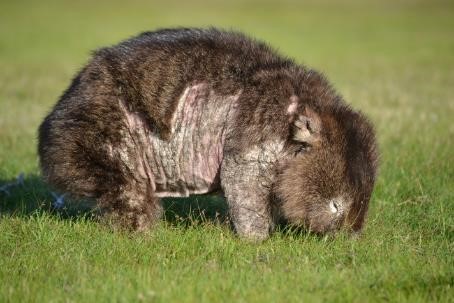
and we are now studying chemical treatment options.
Wildlife Health Toolkit
The One Health Research Group, with collaborators, offer services and capabilities in the form of a comprehensive Wildlife Health Toolkit, which can be used to tackle any wildlife health issue.
Our Wildlife Health Toolkit can provide services in the following fields:
- Outbreak investigation into illness, death and species decline
- Health assessment of species to determine their resilience to threatening processes
- Risk analyses for wildlife health issues
- Disease surveillance of wildlife species, including field work for targeted issues including pollution (Wildlife Health Surveillance: Victoria)
- Diagnostic capability for a wide range of health issues such as micro- and macro-parasites, including viruses
- Epidemiological advice and analysis of wildlife health data.

as well as sampling for specific pathogens.
Wildlife disease outbreak investigation
A specific service is outbreak investigation for wildlife to determine the causes and control of illness, death and species decline.
Outbreak investigation follows a well-developed methodology used across the medical and veterinary sciences. These methods have also been very useful in understanding species decline and for example, determined that chytridiomycosis has caused the global decline and extinction of frogs. The main steps we follow are outlined below:
- Case definition
- Differential diagnosis list
- Pattern of outbreak in space and time
- Risk factors for cases
- Tentative diagnosis
- Implement control
- Pathological examination
- Testing hypotheses
- Refine control

Development of management strategies for existing disease issues
The One Health Research Group can investigate drivers of and treatment options for endemic disease issues in wildlife populations, leading to development of effective management or mitigation strategies.
There are many endemic (existing, not necessarily changing in extent or severity) disease issues affecting Australian wildlife, which may have significant animal welfare or conservation impacts. Examples for this are sarcoptic mange in wombats and koalas, toxoplasmosis in marsupials or chytrid fungus in amphibians.
Unfortunately, there are still many unknowns, making effective management of these diseases difficult. We can help with:
- Basic research to addressing knowledge gaps: Working towards a solid understanding of the impacts of these diseases as well as the drivers of disease occurrence, leading on to
- Applied research: Developing and testing management solutions (eg: treatment, prevention, mitigation).
We have expertise in:
- Field-based studies
- Captive studies
- Laboratory-based studies.
Our collaborations with many colleagues both within and outside the Melbourne Veterinary School, provide us with further access to a wide range of expertise (eg: modelling) and cutting-edge infrastructure.
Get in contact
To discuss how these services can incorporated into your wildlife management or research program, please contact Prof Lee Skerratt.
To contribute to wildlife surveillance efforts, contact Dr Pam Whiteley at Wildlife Health Surveillance: Victoria, if you observe wildlife mortality or other health issues.
Researchers and graduate research (PhD/MPhil) students in the One Health Research Group.
Academic staff
Prof Lee Skerratt
Lee Skerratt is a wildlife epidemiologist who mostly studies infectious diseases that threaten biodiversity or that spillover from wildlife into humans and domestic animals. He has worked on a variety of vertebrate taxa and pathogens including bat viruses, frog fungi, marsupial parasites and avian bacteria over the past 30 years.
l.skerratt@unimelb.edu.auA/Prof Jasmin Hufschmid
Jasmin Hufschmid is interested in wildlife population health in the context of both conservation impacts and potential for public health impacts, including parasitology, infectious disease, pathology and epidemiology including disease risk analysis. Her current research includes work on toxoplasmosis in Australian marsupials and effects of plastics on the health of bird species. Dr Hufschmid is particularly interested in collaborating with colleagues in other veterinary and non-veterinary disciplines (eg: ecology, toxicology) for a holistic approach to wildlife and ecosystem health.
huj@unimelb.edu.auA/Prof Lee Berger
Lee Berger is broadly interested in wildlife health with a focus on infectious diseases that impact biodiversity. Most of her research has focused on the amphibian chytrid fungus that has spread globally and caused 90 frog species to become extinct. Since working on the outbreak investigation, she has researched its pathogenesis, treatment, distribution, disease ecology, diagnosis, conservation management and immunity.
lee.berger@unimelb.edu.auDr Laura Brannelly
Laura Brannelly is interested in conservation and ecology with a specific focus on amphibians and their decline due to infectious disease. Her current research focuses on identifying ways in which populations persist following devastating declines. Specifically, she is exploring how disease affects reproduction in frogs and investigating how changes in reproductive effort and output can result in population resilience.
laura.brannelly@unimelb.edu.auPam Whiteley
Pam Whiteley collaborates with people from Victoria’s communities who observe wildlife disease and pathology, microbiology, virology, parasitology, toxicology, epidemiology colleagues to make a diagnosis and identify agents as Coordinator, Wildlife Health Victoria: Surveillance, reporting to Wildlife Health Australia. Surveillance reduces disease impacts on biodiversity, biosecurity and zoonotic diseases (One Health).
pamw@unimelb.edu.auDr Tiffany Kosch
Dr Tiffany Kosch is investigating the genetic architecture of resistance to the fungal disease chytridiomycosis in endangered frogs such as the Australian Southern Corroboree Frog. She applies approaches from genomics, quantitative genetics, synthetic biology, and animal breeding to develop methods to increase chytrid resistance in frogs and improve the success of reintroduction programs.
tiffany.kosch@unimelb.edu.au
Dr Emma Hobbs
Emma Hobbs is a One Health research veterinarian with experience conducting zoonotic public health and socioeconomic field research, community engagement, capacity building and international development in low- and middle-income countries across southeast Asia and sub-Saharan Africa. Her current research is looking to understand the progression and impact of Buruli ulcer (infection with Mycobacterium ulcerans) on native Australian possums and their role in zoonotic disease transmission in endemic areas of Victoria.
ehobbs@unimelb.edu.au
Prof Andy Bennett
Andy Bennett is a zoologist with broad research interests spanning One Health, animal behaviour and ecology. His current ARC Discovery grant is on beak and feather disease virus in parrots. He has worked on a variety of systems over the last 30 years, usually avian, particularly parrots and waterbirds, and their ecosystems and ecology. He is past President of the Association for the Study of Animal Behaviour and is Vice-President of the Ecological Society of Australia. He is on the three person organizing committee bringing the International Behavioural Ecology Congress to Melbourne in 2024.
andy.bennett@unimelb.edu.au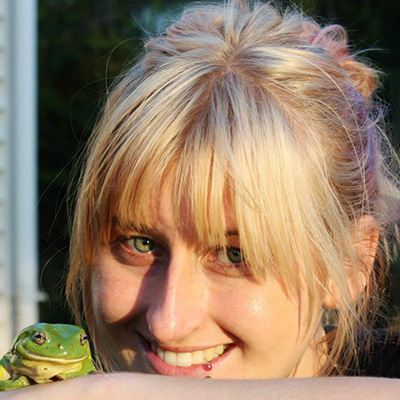
Dr Rebecca Webb
Rebecca is passionate about amphibian conservation, especially in regards to their biggest threat; the chytrid fungus Batrachochytrium dendrobatidis. She hopes to increase understanding of this pathogen and its weaknesses and to explore potential control mechanisms. Currently her research focusses on using gene silencing techniques to identify important fungal genes, and as a possible tool to reduce fungal virulence.
rebecca.webb@unimelb.edu.au
Dr Michael Lynch
Michael Lynch is a wildlife veterinarian with extensive experience in the clinical care, conservation and welfare management of both captive and free-ranging wildlife. Two focus areas over an extended time have been investigating toxoplasmosis in Eastern barred bandicoots and welfare issues in Victorian koalas. He is also recognised for his expertise in marine mammal anaesthesia and health management and has written state and national guidelines for the management of stranded cetaceans. Michael’s current activities in addition to his work as a clinician, include Buruli ulcer research in ringtail possums and wildlife disease risk analyses.
mlynch@unimelb.edu.au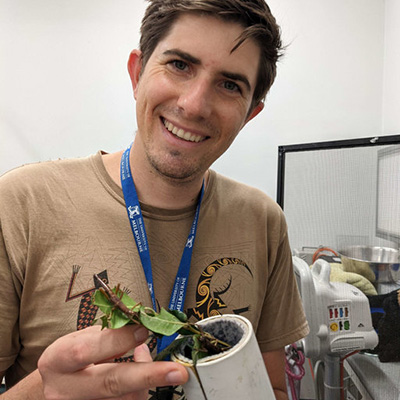
Dr Nicholas Doidge
Nicholas Doidge is a veterinarian with interests primarily in conservation medicine, as well as zoo and wildlife health and disease. He recently completed a residency at Melbourne Zoo and is now doing a PhD investigating bacterial disease in the critically endangered Lord Howe Island stick insect.
nicholas.doidge@unimelb.edu.au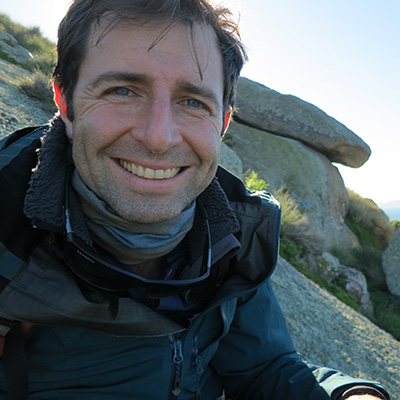
Dr Brett Gardner
Brett Gardner has a special interest in wildlife in field-based anaesthesia and surgery. He is based part-time at both Zoos Victoria and the University of Melbourne. Dr Gardner is fascinated by marine mammal and sea turtle health, and particularly enjoys remote conservation fieldwork. His current research investigates the epidemiology of infectious agents in abortions in Australian fur seals.
brgardner@student.unimelb.edu.au bgardner@zoo.org.au
Dr Tharaka Liyanage
Tharaka Liyanage is a veterinarian with a broad interest in wildlife health and conservation, zoonotic diseases and Asian elephant medicine and management. Currently Dr Liyanage is working on a PhD project involving developing an ELISA to detect Toxoplasma gondii-specific antibodies in multiple marsupial species in Australia.
tkoswaththal@student.unimelb.edu.auGraduate researchers
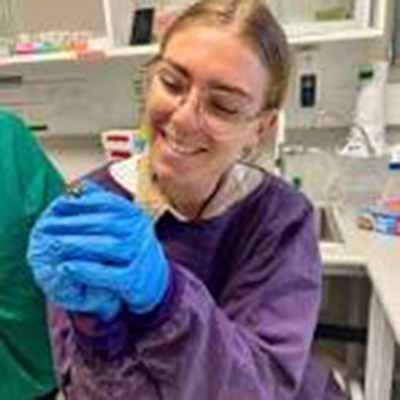
Mikaeylah Davidson
Mikaeylah Davidson has a keen interest in wildlife conservation using genetic interventions to achieve long term sustainability. Her current research is focused on using genomics and synthetic biology to improve resistance to the fungal disease, chytridiomycosis in endangered Australian amphibians.
mikaeylahd@student.unimelb.edu.au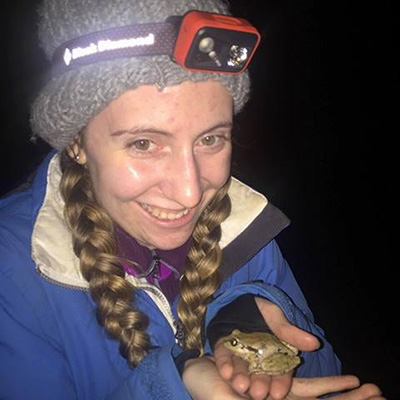
Danielle Wallace
Danielle Wallace is passionate about ecology and wildlife conservation, with a particular focus on frogs and amphibian disease. Her PhD research explores how the fungal disease, chytridiomycosis, affects the breeding behaviour and mating displays of Victorian frogs.
danielle.wallace@student.unimelb.edu.au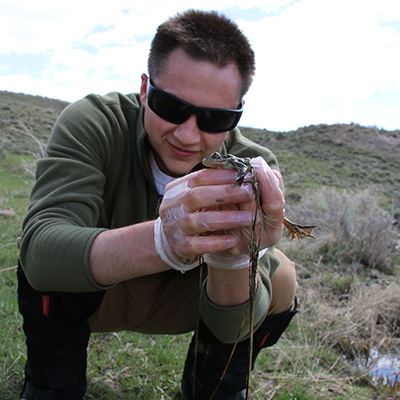
Alexander Wendt
Alexander Wendt is interested in amphibian conservation using genetics as a tool to determine population structuring and the variables that may influence metapopulations, whether biotic or abiotic. His PhD research focuses on how the fungal disease, chytridiomycosis, may act as a selective pressure on amphibian reproduction.
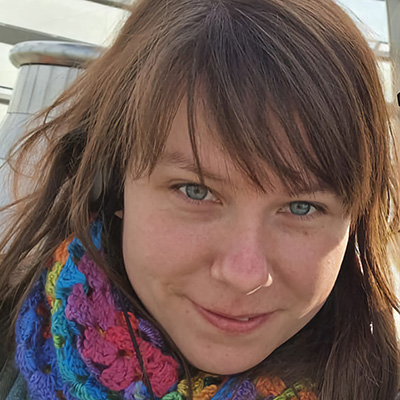
Dr Anna Langguth
Anna is a veterinarian with a special interest in wildlife immunology. Her interest in this topic was sparked while working on a novel oral rabies vaccine bait for European wolves in Germany. After completing a Masters degree in Wild Animal Health at the Zoological Society of London and the Royal Veterinary College, Dr Langguth is now undertaking a PhD investigating the susceptibility of Australian bats to White Nose Syndrome.
a.langguth@unimelb.edu.au
Melissa Hernandez Poveda
Melissa Hernandez Poveda is a Colombian biologist and microbiologist passionate about evolution, ecology, and conservation, using genetics as a tool. During her masters, she worked with concerted evolution in frogs. Currently, her Ph.D. research is focused on differences in gene expression related to resistance to chytridiomycosis in Corroboree frogs.
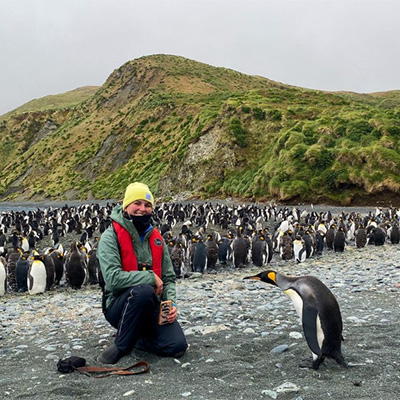
Eliza Stott
Eliza Stott is a wildlife biologist with a keen interest in Australian native mammals, in particular wombats. Her PhD project involves treatment of sarcoptic mange in bare-nosed wombats, looking at moxidectin pharmacokinetics and field treatment success. Alongside her PhD she works part time at Phillip Island Nature Parks, working with seabird rescue and rehabilitation, as well in koala conservation. Eliza is also the founder and director of the not-for-profit organisation Women in Wildlife.
estott1@student.unimelb.edu.au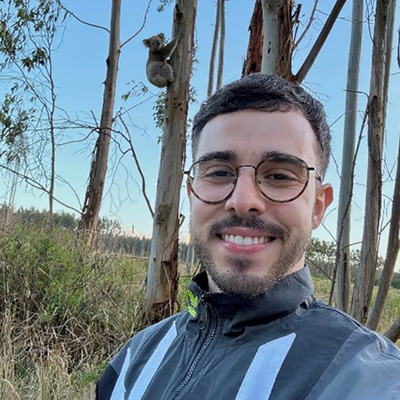
Pedro Paulo de Oliveira Nogueira
Pedro Oliveira is a Brazilian animal scientist dedicated to the conservation and health of wildlife. Pedro’s journey has taken him from exploring non-human primates’ genetic identification and parasitology during his masters studies to his current pursuit: unravelling the complexities of neospora caninum transmission between domestic and wild animals for his PhD.
poliveiranog@student.unimelb.edu.au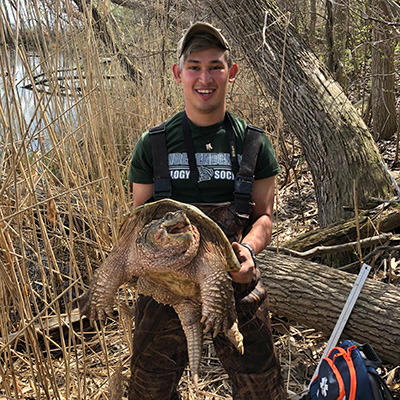
Dan Guinto
Dan is a conservation geneticist who focuses on reptile and amphibian conservation. His primary interests are genetic resistance to disease, landscape genetics, and population dynamics. Dan is currently undertaking a PhD focused on gene expression in relation to chytrid resistance in Corroboree frogs.
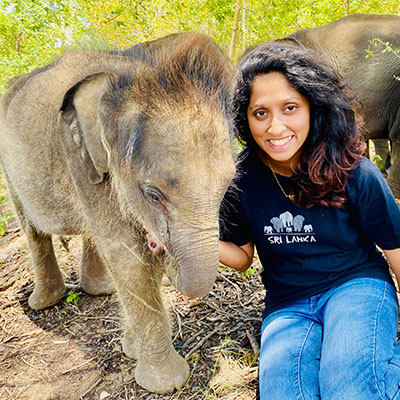
Kashmini Sumanasekera
Kashmini is a veterinarian passionate about wildlife conservation, with a particular emphasis on the health and infectious diseases affecting wildlife. After completing her MSc in Wild Animal Health, she spent four years as a zoo veterinarian in Sri Lanka. Currently pursuing her PhD, Kashmini is actively engaged in combatting the deadly amphibian fungal disease Chytridiomycosis, where her research involves developing an innovative therapeutic method utilizing RNA interference.
ksumanaseker@student.unimelb.edu.au
Dr Nila Taylor
Nila is a veterinarian with broad interests in wildlife population health, the conservation of biodiversity and wildlife welfare all within the context of the One Health framework. Splitting her time between clinical work for Zoos Victoria and the University of Melbourne, Nila’s current research focuses on the zoonotic disease caused by mycobacterium ulcerans in Australian possums.
nila.taylor.1@unimelb.edu.au
Ellis Mackay
Ellis is an environmental scientist driven by a life-long passion for wildlife and ecology. She is undertaking a PhD in veterinary science and environmental chemistry. Ellis is focusing on ecotoxicological questions related to the extent and impacts of per- and polyfluoroalkyl substances (PFAS) in native wildlife species and broader ecosystems.
emackay1@student.unimelb.edu.au
Prabath Meeagamage
Prabhath is a Sri Lankan wildlife ecologist committed to conserving threatened species. His research focuses on understanding how ecosystems persist and respond to challenges such as diseases, environmental contaminants, habitat modifications and global climate change. During his PhD, he is studying the survival and reproduction of Growling Grass frogs in polluted, man-made habitats impacted by chytridiomycosis.
cmeegamage@student.unimelb.edu.au
Venice Chan
Venice is a conservation biologist with a passion for ecology and wildlife conservation. Her Masters research explores the impacts of chytridiomycosis on the reproductive biology of endangered green and golden bell frogs.
venicec@student.unimelb.edu.au
Ximing Tian
Ximing Tian is passionate about using synthetic biology approaches to combat the deadly fungal disease chytridiomycosis in amphibians. After completing her Master’s degree in Pharmacy at Tianjin University, she is now pursuing a PhD focused on optimizing siRNA expression vectors for targeting pathogenic fungi and designing heterologous inducible promoters.
ximingt@student.unimelb.edu.au
Nazia Akram
Nazia is a PhD researcher with a background in zoology and molecular biology, specializing in amphibian disease ecology. Her work explores how frog skin alkaloids and antimicrobial peptides (AMPs) impact Batrachochytrium dendrobatidis (Bd), the fungal pathogen behind chytridiomycosis. Combining microbiology, molecular biology, and One Health principles, She aim to uncover new antifungal strategies while contributing to amphibian conservation and she seek to bridge the gap between molecular mechanisms and real-world ecological challenges.
nazia.akram@student.unimelb.edu.au
Dr Catherine Binns
Catherine is a veterinarian with several years’ experience as a zoo and wildlife clinician, focusing on zoo animal health management and wildlife rehabilitation. She has a keen interest in wildlife population health and developing actionable strategies to conserve threatened species. Her masters project is in little penguin health and implementing active disease surveillance in the population on Phillip Island.
catherine.binns@student.unimelb.edu.au
Amy Aquilina
Amy is a research technician for the One Health Research Group. She is passionate about wildlife conservation, with a focus on amphibian conservation and infectious disease. During her Masters she worked on a project developing methods for self-clearance of chytridiomycosis in green and golden bell frogs.
amy.aquilina@unimelb.edu.auInfectious diseases and other threatening processes of wildlife are becoming increasingly important as globalisation and environmental change are causing them to emerge and re-emerge. The One Health Research Group uses a multidisciplinary approach to provide holistic solutions to mitigate the impact of health issues that impact biodiversity, humans or agriculture.
OHRG researchers have decades of experience researching wildlife health, including emerging infectious diseases and toxicoses.
A major focus is chytridiomycosis, which has caused the extinction of about 90 amphibian species around the world, and the decline of hundreds more. Other current research includes industrial fluoride toxicity in marsupials, risk analysis for the introduction of white nose syndrome in bats, determining the importance of disease in the conservation of the Lumholtz tree kangaroo, and treatment of sarcoptic mange in Australian wildlife.
Recent past work includes improving the control of transmission of Hendra virus from bats into horses and humans, and investigating avian influenza and Newcastle disease in waterfowl in Australia - both these diseases sporadically spill over into poultry.
Buruli ulcer and Australian possums
Reporting & sample collection info for veterinarians
Current research projects
-
Vulnerability of Australian bats to White Nose Syndrome
This project is investigating the immune system and environment of Australian microbats projected to be most at risk of the potentially lethal fungal disease white-nose syndrome.
-
Improving disease resilience in ecosystems using synthetic biology
The Future Fellowship will use the latest biotechnology research to improve disease immunity in wild populations.
-
Effect of disease on reproduction plasticity and evolution in amphibians
Exploring the impact of disease on reproductive success in amphibians using both lab and field techniques to understand ecological mechanisms for resilience of wildlife to emerging diseases.
-
Phalaris toxicity in macropods
This project investigates distribution of introduced toxins, prevalence and risk factors, and aims to develop management options.
-
Sarcoptic mange in wombats
Assessing pharmacokinetics of moxidectin for treating mange in wombats.
-
Surveillance for Mycoplasma and Brucella as potential etiological agents of abortion in Australian Fur seals
Can bacterial agents play a significant role in third trimester abortions in Australian fur seals?
-
Beating Buruli in Victoria
A new three-year research project commenced in February 2021 aiming to better understand how Buruli ulcer is transmitted and determine effective ways to reduce and prevent infections.
-
Assessing the risks of lead from ammunition to Australian people and wildlife
This ecotoxicology project aims to better understand the threat posed by toxic lead from shooting activities to Australian wildlife, humans and domestic animals that regularly consume meat of wildlife origin ("game" meat).
-
Reptile microbiome
This project seeks to determine the factors that shape reptilian microbiotas, and how these bacterial assemblages influence host physiology and evolutionary biology.
-
Wildlife Health Victoria: Surveillance
Contribute to our understanding of wildlife health in Victoria by reporting disease events (sick and dead animals) in free ranging wildlife that you observe.
-
Perceptions of knowledge and interest in future education regarding Australian native wildlife in veterinarians practising in Victoria, Australia
A lack of knowledge or skills and time have been identified in a 2018 questionnaire as the main factors limiting the treatment of wildlife presented to private veterinary practices in Australia.
-
Passive Disease Surveillance of Koalas
We know that Victorian koalas are subject to a range of health issues, such as infection with chlamydia, but also a range of non-infectious problems. This project investigates causes of health and disease in our koala populations through examination of koalas that have been found dead or dying.
-
Little penguin passive disease surveillance
This project will provide us with important data on the range of health issues affecting little penguins at Phillip Island Nature Park. Penguins that have died or been found recently dead will receive a full post mortem examination to determine cause of death and the range of health issues present.
Completed projects
-
White Nose Syndrome likely to pose a risk to Australian bats
In collaboration with colleagues from DELWP/ARI and South Australia, we completed a formal disease risk analysis to assess the risk of the devastating fungal disease White Nose Syndrome on Australian bats.
-
Impacts of industrial chronic fluoride toxicity on Australian marsupials
This project investigated the impacts of chronically elevated fluoride intake, due to industrial contamination, on a range of Australian marsupials (kangaroos, wallabies, possums and koalas).
-
Science Perspective article: Rigorous wildlife disease surveillance
Anna Meredith and other experts discuss how wildlife disease surveillance could mitigate future zoonotic emerging infectious diseases.
-
Science Perspective article: Rewilding immunology
Lee Skerratt and Anthony Waddle contribute to an article on how broadening immunology research to integrate comparative approaches across species and environments can amplify the potential of immunology to improve the lives of humans and other animals.